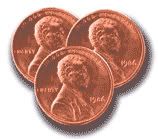

































Posted by
Ace
at
1:27 AM
0
comments
![]()
Posted by
Ace
at
3:39 PM
0
comments
![]()
The 73-year-old guitarist and singer, dubbed the "Godfather of Go-Go," is still a man on the move thanks to the funk-based sound he created in the 1970s with his band, the Soul Searchers.
"Go-go music just keeps going and going and going," Brown says by phone from his home in the Maryland suburbs of Washington, D.C.
To residents of the U.S. capital, Brown is as much of a local icon as the monuments that dot the cityscape. But outside of the greater Washington area, go-go's birthplace, the man and his creation have a lower profile. That's despite the props Brown has gotten from rapper Nelly, who's sampled his music, and other hip-hop stars he's influenced.
Aside from a flirtation with the international spotlight in the mid-1980s, go-go has remained a regional form of music. Significantly, however, it has showed few signs of losing ground to national trends.
"We're About the Business," a 2007 release that's available as an import in Japan, helps explain why that's the case. Produced by Carl "Chucky" Thompson, a former Soul Searchers drummer who's helmed records by Mary J. Blige and Busta Rhymes, the album incorporates hip-hop influences while remaining true to go-go's syncopated soul.
Some argue that go-go, with its horns and Latin-style percussion, is best experienced in concert. It's an opinion that seems to be borne out by the fact that Brown has issued umpteen live albums during the decade that elapsed between his latest disc and its studio predecessor. His Japan tour, which starts Feb. 16 in Tokyo, is his first since 1988, making it a rare chance to hear the real deal.
Go-go, as its name suggests, doesn't stop. Rather than pause between songs, the musicians typically fill the gap with timbales, congas and other percussion instruments as they segue into the next tune. It's a technique Brown began using to keep people on the dance floor back when he paid the bills by playing Top 40 covers. It was also a way to lessen the burden on his band.
Though urban legend has it that he came up with go-go because he despised disco, Brown remembers differently.
"It wasn't that I couldn't stand disco. It's just that I got so tired of playing disco because you have to keep up with the Top 10," he explains. "The work was so hard. Every week, they were coming out with new tunes. If it was a hit, we had to learn it."
Brown, who recalls playing up to 30 songs a night in those days, found a way of out of the grind. By having the band break into a percussion groove and engaging the audience with call-and- response chants between songs, he could stretch things without having to constantly update their repertoire.
"When we locked into that go-go groove, people liked it so much they didn't care how many songs we did," he says.
The beat that inspired the groove is one that Brown first heard as a child while attending church. He says the memories of "people jumping and shouting off that beat" never left him. He heard it again in "Mister Magic," the title track of a 1975 album by saxophonist Grover Washington Jr., whose music straddles R&B and jazz.
Brown slowed down the beat and topped it off with horns and Latin-style percussion. Mindful that audiences wanted to hear what they heard on the radio, he had to be careful about putting too much of himself into the music. But once he noticed the reaction of the audiences who frequented D.C.'s "cabarets" — social events held in venues such as hotels and fraternal halls — there was no holding him back.
"Everybody used to come to the cabaret with their suits and ties and their mink coats. They'd sit down, and most of them wouldn't dance until they had a few drinks," Brown recalls with a laugh. "But once we started doing that go-go beat, they'd come through the door dancing. I knew then it had caught on."
Brown, who taught himself to play guitar during a four-year stint for assault in Virginia's Lorton Prison in the mid-1960s, hit No. 1 on the U.S. R&B charts in early 1979 with "Bustin' Loose," a single that predated the so-called golden age of go-go. He charted again in 1984 with "We Need Some Money."
"I wrote that song in 15 minutes because I was deeply inspired — my pockets were empty," he says, laughing.
By the early 1980s, go-go had attracted the attention of Chris Blackwell, the founder of Island Records and the man who helped turn Bob Marley into an international star. His label signed go-go acts Trouble Funk and Experience Unlimited, and he was hoping "Good to Go," a 1986 film he produced, would make the sound a worldwide phenomenon. But it ended up as a poorly executed crime saga set to music.
"That movie sucked," Brown says. "I'm sorry I allowed myself to appear in it. It didn't have nothing to do with go-go — cars turning over, people shooting one another and all that crap. You come to go-go to have a good time, it'll make you move. When you hear go-go, you're going to feel it. That's the bottom line."
Posted by
Ace
at
4:04 AM
0
comments
![]()
Born from the ashes of New York hip-hop DJ supergroup the X-ecutioners and from a frustration with the current state of turntablism, Ill Insanity are on a mission to return the art of the DJ to its former glory.
Composed of ex-X-ecutioners Rob Swift and Total Eclipse along with younger inductee DJ Precision, the turntable trio have just released their progressive scratch music debut, Ground Xero, on Fat Beats, which includes among its turntable guests fellow former X man Roc Raida, plus Excess and DJ Q-Bert.
Ill Insanity's ongoing national tour, which stops in San Francisco on Feb. 21 for a performance and a workshop at Guitar Center and a party-rocking throw-down at Levende Lounge, seems less like a jaunt and more like a crusade to its three impassioned turntable ambassadors.
"This is the beginning of us taking the art form back," Rob Swift said, sounding something like one of the Marvel Comics heroes from which his original group, the X-Men, took their name.
Speaking a few weeks ago at Swift's Queens, NY, apartment, which also serves as the group's recording studio and rehearsal space, the trio had gathered to mourn what they see as a creative lull in the art of turntablism and to prepare for its pending renaissance.
"Basically we were all bored with music, and that's what brought us together," Total Eclipse said. All three agreed that for several years now DJ battles, traditionally the barometers gauging the advancement of the turntable art form, have been in a decline. "There has been a really poor attendance at DJ battles for the past five years, especially here in the US," said Precision, the 2007 USA DMC Finals DJ battle champion. "And it's because the art form has slipped so much."
Part of this artistic stagnation, they believe, is because DJs of recent years have been satisfied with merely imitating instead of trying to innovate. "The younger DJs are too caught up with looking up to what came before, so they stop practicing when they master that trick that QBert or whoever has already done years ago," Swift said, "and consequently now everyone is sounding the same."
Precision jumped in: "And a lot of them don't even know the complete history of the DJ, like that Steve Dee created beat juggling."
In performance Ill Insanity's setup includes five turntables, three mixers, and computers to operate the Serato program. "What we are trying to do is to use the new technology without dumbing down the art," Swift insisted. "We have much respect for what came before us, still applying the
And as for the future of turntablism? Swift is optimistic: "There could be a kind of DJ revolution again. I predict that in a couple of years things will go back to the way they were."
ILL INSANITY
Feb. 21, 6 p.m. performance and workshop, free
Guitar Center
1645 Van Ness, SF
(415) 409-0350
guitarcenter.com
Posted by
Ace
at
3:57 AM
0
comments
![]()
Posted by
Ace
at
11:16 PM
0
comments
![]()
Promising to "Redeem your reputation and more," the product line included a "virtuous vanilla"-flavored lip balm and a "Get Tight with Christ" hand and body cream, The Straits Times said.
Wing Tai Retail, which manages the British retailer Topshop, removed the line late last month after receiving complaints.
"These products trivialize Jesus Christ and Christianity," it quoted Nick Chui, 27, one of the complainants, as saying. "There are also sexual innuendoes in the messages and the way Jesus is portrayed in these products."
One product has packaging with the image of Jesus wearing a bright white robe as he looks toward the heavens, while a heavily made-up blonde woman with an arm draped across his shoulder gazes dreamily at his face.
"Why would anyone use religious figures to promote vanity products? It's very disrespectful and distasteful," the report quoted 24-year-old accountant Grace Ong, as saying.
Posted by
Ace
at
5:29 PM
0
comments
![]()

Posted by
Ace
at
9:37 PM
0
comments
![]()
Posted by
Ace
at
6:25 PM
0
comments
![]()
LOS ANGELES (AP) — Trapped half a world away by the place she promised to never "go, go, go," a vibrant, exuberant Amy Winehouse dominated the Grammys on Sunday night, winning five awards and delivering a defiant performance of her autobiographical hit "Rehab" via satellite from London.
Wearing a sly smile as she performed for a small cabaret audience, Winehouse gave a sultry, soulful rendition of the hit that has defined her recent fall from grace. She looked just as coy as she sang the song "You Know I'm No Good" — almost reveling in the irony of her words.
But she looked dumbfounded when she was announced as the record of the year winner. She was immediately enveloped by her band, then her mother and father, who have publicly worried about whether their daughter — who just recently entered a drug rehabilation center after months of reported drug use, erratic behavior and canceled performances — would survive her demons.
In a major shocker, Winehouse lost the final award of the night, album of the year, to Herbie Hancock's "River: The Joni Letters."
Posted by
Ace
at
6:13 PM
0
comments
![]()
